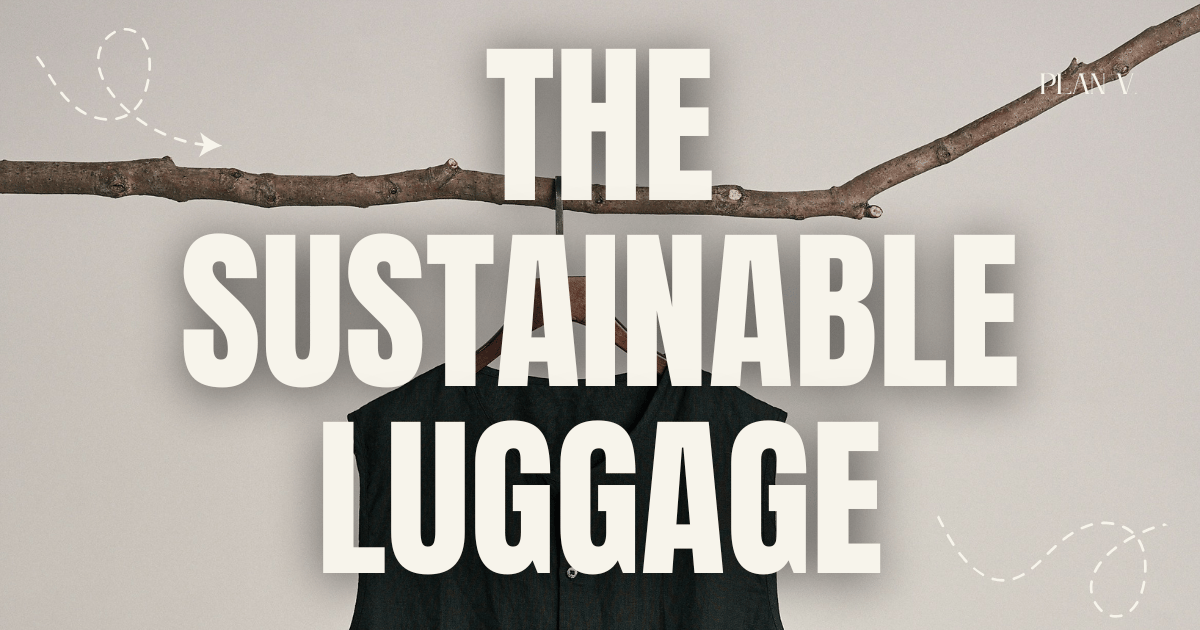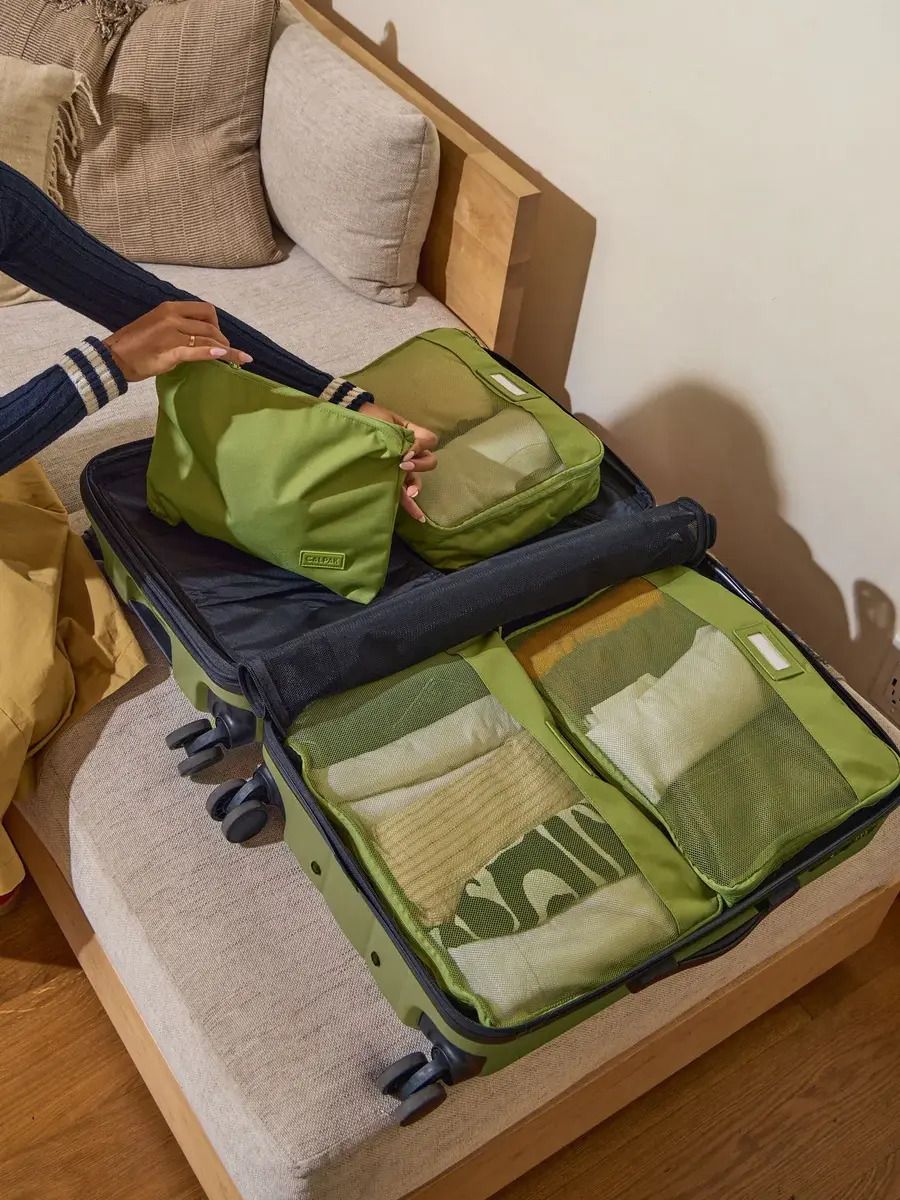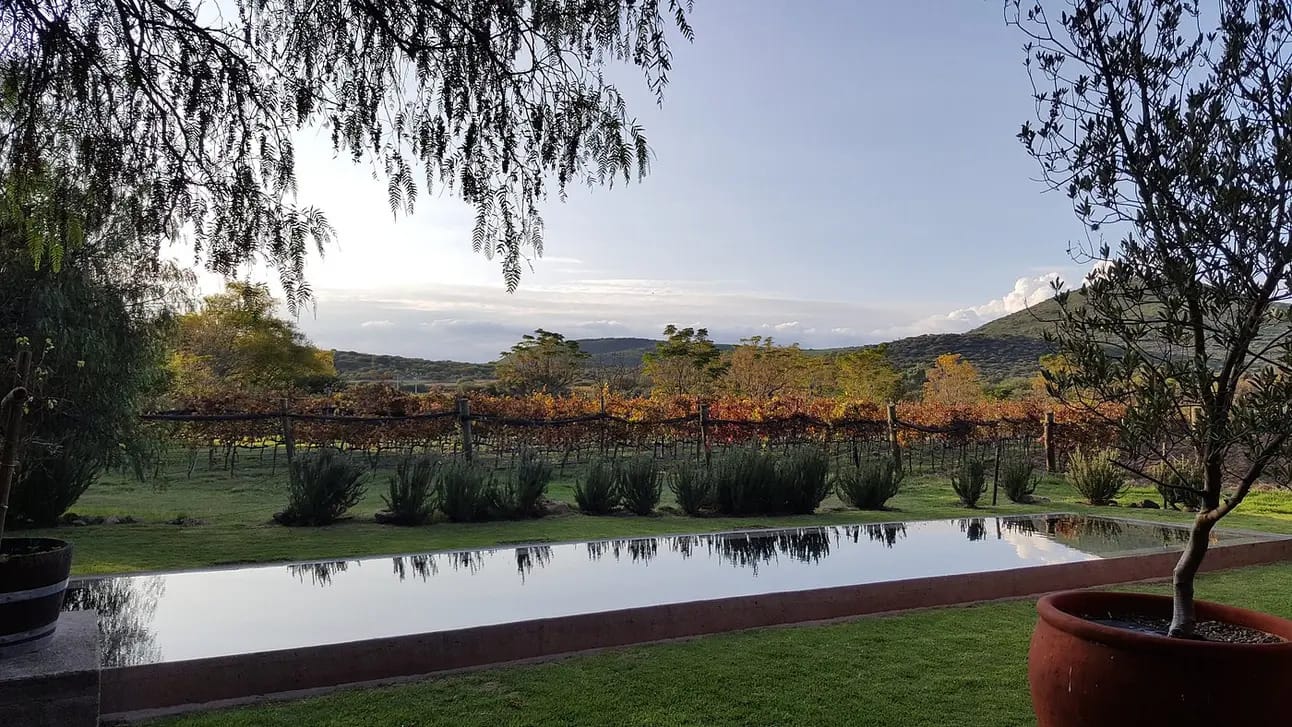- Plan V.
- Posts
- Pack your luggage: an eco-friendly and sustainable suitcase
Pack your luggage: an eco-friendly and sustainable suitcase
The material of your clothing does matter, as does the ingredients in the cosmetics you use and the weight you travel with.

How to start packing?
The changes begin as soon as you pack your suitcase. Consider traveling light, choosing the right clothing, and paying special attention to the ingredients and materials you're packing.
Don't worry, we'll take it one step at a time so the change is positive and significant.
It all starts with your suitcase
If you already have a favorite luggage brand, consider researching their sustainable practices. If you don't have one yet, here are some good recommendations:
🌱 Brands
| 🩳 Main features
|
Which luggage brands are up there in terms of commitments to sustainability?
Leading sustainable luggage brands include Patagonia, which uses 100% recycled materials and supports environmental activism. CALPAK, featuring bags made from recycled plastic bottles with carbon-neutral shipping.
While Samsonite's ECO-NU collection uses ocean plastic waste. And Away, with recyclable aluminum construction and repair programs extending product lifecycles.
Clothing materials and selection
Pack clothing made from organic cotton, hemp, linen, or recycled fibers. These materials biodegrade naturally and don't shed microplastics during washing.
Avoid synthetic fabrics like polyester and nylon, which release harmful microfibers that contaminate water systems at your destination.
Choose versatile pieces that can be mixed, matched, and layered to minimize quantity while maximizing outfit options.
Be sure to monitor your destination's weather before traveling so you can avoid packing extra clothing and travel lighter.
Beauty basics
Choose vegan and cruelty-free beauty brands that align with sustainable values. Brands that promote the elimination of single-use plastics have a bonus. Some recs:
Ethique offers solid shampoo and conditioner bars that promote the elimination and use of plastic bottles, as well as special products for different hair types.
Weleda offers organic skincare products in recyclable packaging. It partners with local farmers and is paraben- and phthalate-free.
Pacifica focuses on vegan cosmetics with formulas that are safe for reefs and your skin.
Other options include Dr. Bronner's Multi-Purpose Castile Soap. You can use it as shampoo, body wash, and even laundry or dish soap, all in one refillable bottle.
SPANISH SECTION:
Ruta del vino: Querétaro (guía completa)
La elaboración de los vinos queretanos, en especial por su altitud, nos regala vinos con una acidez equilibrada y menor contenido alcohólico, lo que los hace más digeribles.
El estado produce el 30% del vino mexicano. Cuenta con más de 30 casas vinícolas que generan alrededor de cuatro millones de botellas al año.
La especialidad de la región son los vinos espumosos producidos con un método tradicional. Los tintos, blancos y rosados también destacan por su calidad.
Affordable slow fashion brands: A traveler's guide to sustainable style
Behind the scenes: What makes a brand truly slow and sustainable?
These brands prioritize quality craftsmanship, ethical labor practices, and environmental responsibility.
They focus on creating timeless pieces designed to last years rather than seasons, using sustainable materials and transparent supply chains. The production process involves fair wages for workers, minimal environmental impact, and often smaller batch productions that reduce waste.
Slow fashion presents an affordable alternative to change, throwing over the fast fashion mentality.
Materials that matter
If you're unsure where to start, consider reading the labels on the clothes you purchase.
Organic cotton: grown without harmful pesticides, softer, and can last between one and five years (more durable than conventional cotton).
Tencel and Modal: made from sustainably sourced wood pulp, naturally antibacterial, and moisture-wicking.
Hemp: The clothes have a lifespan of up to 15 years, are UV-resistant, and become softer with each wash.
Recycled polyester: diverts plastic waste from landfills while maintaining performance features.
Merino wool: temperature regulating, odor-resistant, and perfect for travel.
Some other benefits of packing clothes made from these materials:
Quick-drying properties.
Wrinkle resistance.
Natural odor control - essential features for extended journeys.
See you next time,

Decode the Zeitgeist with 1440
Every week, 1440 zooms in on a single society-and-culture phenomenon—be it the rise of Saturday Night Live, Dystopian Literature, or the history of the Olympics—and unpacks it with curiosity-driven rigor. You’ll get a concise read grounded in verified facts, peppered with thought-provoking context and links for deeper exploration. No partisan angles, no fear-mongering—just the stories, trends, and ideas shaping how we live, work, and create.





Reply